If you need to syphon petrol, don’t do it by mouth!
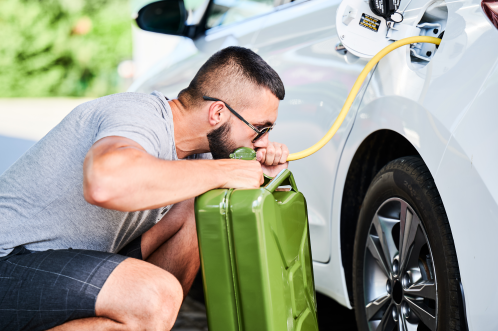
A brief moment of not paying attention at the fuel pump and you’ve got the wrong fuel in your tank. Or perhaps a teenager has run out of fuel and tries to quickly fill their moped from the tank of a colleague. Anyone thinking they can safely suck petrol through a hose using their mouth will soon change their mind. Petrol will reach your mouth much quicker than expected – and before you know it, you’ve swallowed it. These are common poisoning scenarios and they tend to occur more often to men than women. Petrol burns the mouth, causes coughing and retching, and may potentially find its way into the lungs.
What should you do in an emergency?
If petrol has been swallowed:
- Do not induce vomiting.
- Rinse mouth.
- Drink 100 – 200 ml of clear, fat-free fluid e.g. water.
Seek medical attention:
- If there are any signs of aspiration (e.g. persistent cough, respiratory distress), seek immediate medical help or call the emergency services (dial 144 in Switzerland).
Note: In rare cases, pulmonary symptoms may appear up to three days later. - In the event of severe gastrointestinal symptoms.
This can cause life-threatening chemical pneumonitis
If petrol gets in your mouth, typical symptoms include intense burning in your mouth, retching and coughing. Swallowing petrol often causes nausea, vomiting, diarrhoea and persistent belching. Fortunately, symptoms in most cases remain mild.
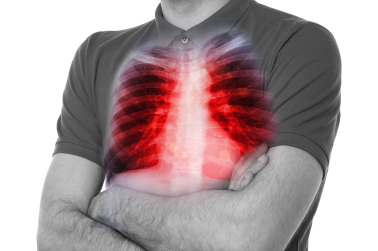
However, even the smallest amounts of petrol can cause chemical pneumonitis (aspiration pneumonia) if it reaches the lungs. It may also cause life-threatening respiratory symptoms. There is no antidote and prolonged hospitalization may be necessary.
Petrol has a low viscosity and is highly volatile. This means it is an extremely thin fluid and evaporates easily. These properties make it extremely easy for this fluid to reach the trachea after swallowing and thereby reach the respiratory tract (aspiration), potentially causing acute coughing to respiratory distress.
These properties make it easy for petrol to reach the lungs, even with vomiting – for this reason, never intentionally induce vomiting!
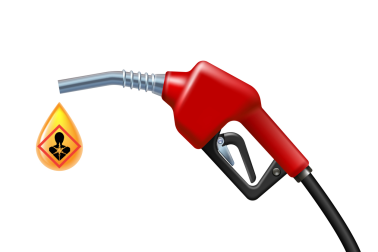
Caution when handling petrol in everyday use
Petrol (also known as gasoline) is harmful to health, highly flammable and environmentally hazardous. It may contain benzene – a carcinogenic substance which we are also exposed to in cigarette smoke. Benzene can be absorbed readily via the skin and lungs.
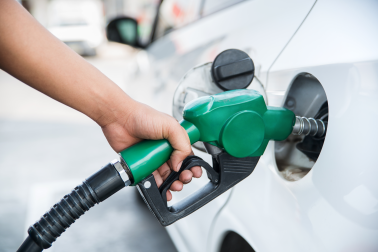
Although petrol comes under the scope of chemicals legislation, it is sold at petrol stations for self-service on the basis of regulatory exemptions. If these exemptions according to the Swiss Federal Office of Public Health (FOPH) were not in place, parents would have to refuel their children’s moped and service station employees would be obliged to advise motorists about the hazards and necessary safety and first-aid measures every time they refuel (further information can be found on the Swiss Federal Office of Public Health (FOPH) website).
It is worth remembering this when handling petrol in everyday life, such as when refuelling. And people who are aware of the consequences won’t decide to syphon petrol by mouth.
Prevention
- Never syphon petrol or diesel through a hose using your mouth.
- If you have filled your tank with the wrong fuel, you should ideally let an expert drain your tank (breakdown service, garage).
- If you want to syphon off the fuel yourself, inform yourself of the correct procedure in advance and only use specialist tools such as a pump.
- Avoid inhaling petrol fumes and ensure good ventilation.
- Never fill drink bottles with petrol or other chemical substances. There is too high a risk that e.g. a child will drink it.
- Tell children as early as possible about the dangers of petrol – many find the odour extremely enticing.
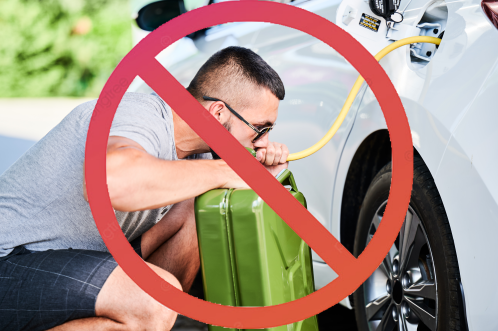
Further information
Vorsicht im Umgang mit Motorenbenzin Take care when handling petrol (bag.admin.ch) in German, French, Italian: With a factsheet, flyer and advice column about petrol (last modified on 08.08.2018).
Additional articles by Tox Info Suisse
If you’ve splashed petrol on your clothes, skin or in your eyes, read the “Toxicon”: Liquid fuels such as petrol.
March 2025

